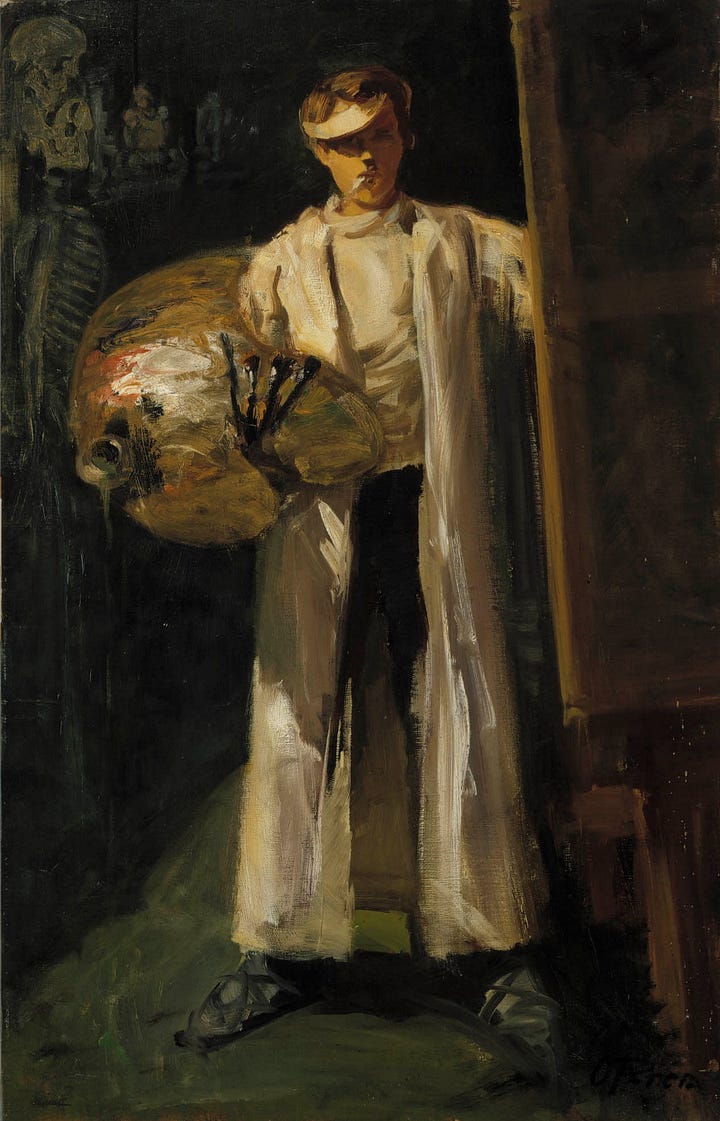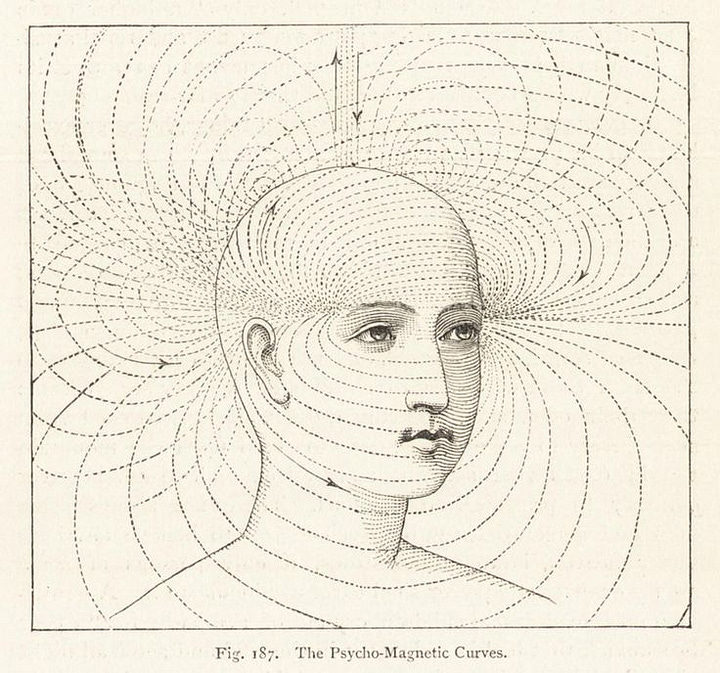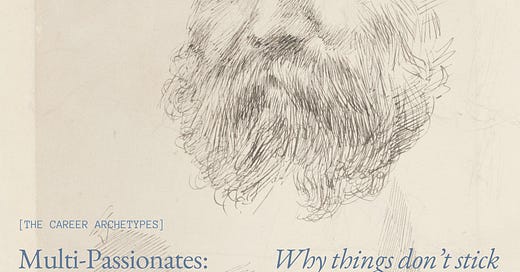4 Reasons Nothing Sticks When You Have Multiple Passions
When none of our passions are sticking it’s a call to re-observe ourselves
In a world that pushes niche selection, a specific major and job stability, to pursue more than one passion becomes blasphemy.
Setting one’s heart and mind towards multiple passions is viewed as a sickness to heal rather than a self to be embraced. Making it harder for the natural awareness of one’s calling to be known.
Rather than championing the discovery of one’s calling through radical self-acceptance, culture pushes a severance from it. Which is only one reason why nothing sticks when we have multiple passions.
1. When partial alignment is mistaken for total alignment
When nothing sticks it can be because we have mistaken partial alignment for total alignment.
The desire for alignment can cause us to get interested in a topic, skill and subject and believe it to be the one. We get really obsessed and into this particular interest only for it to fade away.
I’ve termed this phantom vocation. This happens when we have activated the archetype of our calling, but only partially. Making us believe we know it because we have no reference point for truly knowing it yet. It’s like the difference between a first love and true love: we might mistake our first love for true love, only to later realise it was an immature understanding of love after we’ve experienced true love.
When our interests keep fading away, we haven’t gone deep enough in the right ways to unearth our calling.
2. Afraid of our progressive nature
When nothing sticks it can be because we are afraid of our own progressive nature.
Culture condemns us to tradition unless we progress it. This is one of the many roles that the creative and curious have in society—to go beyond what has been. And what has been is an enforced selection criteria which mimics past representations of what works, to get us paid and contributing to society. Safety in specialisation.
We’ve been indoctrinated to believe that choosing a career requires us to sacrifice most of our passions. But rather than adhere to this, we can go beyond it, engaging with more than one interest in our path. As it is our role to progress a culture that has grown stale.


3. Believing you have to choose one thing and ‘niche down’
When nothing sticks it can be because we believe we need to choose one passion over another.
Our vocations do require form, but not in the way culture pushes.
If we take this idea of niching down, we’ll quickly find that this is a Darwinian perspective entrenched in an evolutionary view of the world. Prescribed by online entrepreneurs and coaches to their students for industry dominance. Even though this is not the best way to view our paths, their view doesn’t even hold true to the perspective they teach from.
Cross-pollination of eco-systems creates the most vitality and life. The most adaptable animals, not the most niched down animals, survive. And those species that become incredibly specialised face a higher risk of extinction when environments change.
Choosing one passion, based on their own evolutionary view, makes the path worse for those walking it. Coherence, not singularity in choice, is a far superior belief, evolutionarily speaking.
4. Worried about the limits of the chosen interest
When nothing sticks it can be because we are worried about the limits of the chosen interest. Commitment can feel like imprisonment to anyone who has more than one interest.
However it’s not the commitment that’s limiting, it is the way that the selection is done. Rather than selecting one interest we need to instead understand how they can work in tandem with the path.
Think about watching a movie. There are multiple characters with different personalities. They all have motivations and directions. Scenes will climax and then move into another scene. Then that one will climax and it will go on like this until the end. Now imagine that you were forced to only select one character with one story. Sure, it can be done, but it won’t improve the movie. Think about Pulp Fiction with only John Travolta. Sure you’ll get more dancing scenes, but it would ruin the movie.
Choosing one interest is focusing on the wrong thing. The better question is how do these interests work together and how much screen time should they get?
When none of our passions are sticking, it’s a call to re-observe our nature, to question the imposed limitations of our world and seek a path that applauds rather than represses our nature. Because if our vocation (the sacred calling we are born to pursue) needs us to embrace more than one interest, it will continue to interrupt our life for the sake of the calling.
Career Archetypes Membership: Looking to discover your unique Career Archetype + find your vocation? Join our 8 week course + community here ($29/month so it doesn’t break the bank) 🖥️
“I can hardly believe the price of this course - best value for money out of any course I have taken. Thank you so, so much for making all this content so accessible to everyone, since being lost in your career can often translate into not having access to a lot of money.” — CA Student
“My absolutely favourite attribute of the course is that it feels like being on a quest 😃 I can't quite put my finger on it but with all the visuals, imagination, mysticism, it's like a video game sprung to life!” — CA Student
“The most important and helpful impression in the topic of career for me in the past 15 years.” — CA Student
More free resources: For more insights & encouragement follow us on Instagram @thecareerarchetypes or tune into The Career Archetypes Podcast on Spotify 🎧






Thank you for writing such an intelligent and thought-provoking piece. I especially resonated with your concept of phantom vocation. Many of us carry a range of passions, often interconnected by deeper motivations and life experiences. But as you pointed out, society tends to demand a simplified, easily packaged version of who we are—something keyword-optimized, digestible, and market-ready.
In America especially, identity is treated as both a sacred value and a sales pitch. We’re encouraged to be “unique individuals,” yet only within narrowly defined, commodifiable boxes: a job title, a demographic, a style, a lifestyle brand. Those of us who are multifaceted—who think or look or act outside the expected lines—are often labeled as confused, indecisive, or just “too much.” But in truth, that complexity often reflects growth, post-conventional thinking, and a refusal to flatten oneself for easy consumption.
It takes real courage, energy, and often privilege to resist the pressure to narrow yourself to one path. Especially for people like me—neurodivergent, with very specific interests and limited resources—exploring multiple callings feels less like indulgence and more like survival. Just launching one career can be an enormous task in our current system. Between KPIs, resumes, and hustle culture, the process often feels more like performance than purpose.
That’s why I believe systems like universal basic income could radically change what’s possible for people. If more of us had the security to take risks, we’d see an explosion of creative, unconventional paths emerge. Until then, the roadmap for multidimensional lives remains murky. The options are there—but they usually come with high risk and low guidance.
For instance, I once had an idea to open a laundromat with a speakeasy in the back. Some people thought it didn’t make sense—“Why would anyone want to drink while doing laundry?”—and honestly, I get it. Most people just want to get their clothes clean and leave. But that’s kind of why the idea appealed to me. It’s about injecting novelty and joy into mundane moments. Maybe it’s not the most practical concept—but it’s a conversation starter. It makes people pause and imagine something unexpected.
Ideas like that—strange mashups, imaginative risks—shouldn’t be dismissed so quickly. They can open the door to new ways of living and connecting. I wish we had more spaces, more think tanks, more cultural permission to dream out loud like that.
So thank you for giving me that spark this morning. I’m really grateful to have started my day with your words.
This was fantastic - felt like you were speaking to me. Just discovered your work. Thank you, Joel.